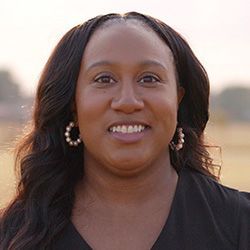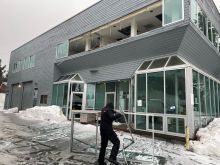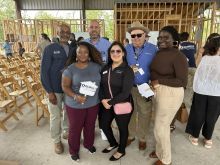Adrienne Norwood
Adrienne works as the Senior Program Associate for the rural team at Enterprise Community Partners. She has been with Enterprise for five years, where she has conducted trainings and supported technical assistance on 515 preservation, and other programmatic work related to Section 4 capacity building. In the past year, she has helped to strengthen Enterprise’s work in the Mississippi Delta. She is a graduate of Mississippi Valley State University with a B.S. in mass communication and Jackson State University with an M.S. in mass media studies.

Washington, D.C.
10 G Street NE
Washington, DC 20002







